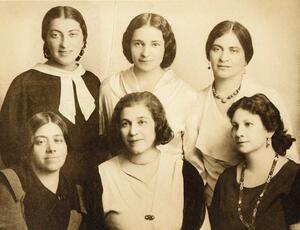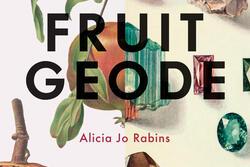Celia Dropkin’s Poetry
These poems by Celia Dropkin—a 20th century Yiddish writer and artist who was born in in Belarus and would eventually make her way to New York—are classics within the canon of Yiddish literature. They have been translated before, but as translation is an art form, a new take on a poem is always worthwhile. That said, the below translations of two of Dropkin’s poems are actually rather old. I completed them over ten years ago when I was first trying my hand at translating Yiddish poetry. Over the years, I’ve considered publishing them, but as other translators were actively publishing Dropkin translations at the time, I decided to wait. When I came across my translations again recently, I was newly struck by the shift in the last stanza of “White As the Snow on the Alps:” the moment when the spell of infatuation breaks and the speaker is able to see the object of her affection clearly. Alternatively, part of me wonders if the first two stanzas of the poem are actually a young man’s declaration of love to a young woman, and the last stanza her harsh rejection. No matter how a reader chooses to interpret these lines, in the end his life goes on, while grass grows over her.
Of these two poems, “You Beam, I’m Beaming,” was the hardest to translate. I have never been happy with the first line, simple as it may be. The original poem is intensely musical; I hope my translation approximates some of that musicality. What I love most about this poem is the blasphemous mention of the “divine being,” der got in the original.
YOU BEAM, I’M BEAMING
You beam, I’m beaming.
in us beams that divine being,
who makes of all a ruin
who knows nothing of the forbidden.
Hammer my hands,
hammer my feet to a cross;
set me aflame, aflame
lay claim to all my charms.
And leave me deep in shame,
drain me and throw me away,
and become estranged, estranged,
along a foreign way.
דו קוועלסט, איך קוועל,
עס קוועלסט אין אונדז דער גאָט,
וואָס מאַכט פון אַלץ אַ תל,
וואָס ווייס ניט פון פאַרבאָט.
קלאַפּ צו מיינע הענט,
קלאַפּ צו מיינע פיס צו אַ קרייץ
פאַרברען מיך, ווער פאַרברענט,
פאַרנעם מיין גאנצן רייץ.
און לאָז מיך טיף פאַרשעמט,
זויג אויס און וואַרף אַוועק
און ווער פאַרפרעמדט, פאַרפרעמדט
אויף אַ באַזונדער וועג.
WHITE AS THE SNOW ON THE ALPS
White, as the snow on the Alps,
sharp, as the air at the peak,
with a spice, like ancient salves,
your beauty calls to me.
For you blind, like the untouched snow,
snatch away my breath, like air that is too thin.
And strangely, my head begins to spin
as if from a queer bewitching scent.
But you are just a boy from a small town
with a nose just a little too long,
you will adorn your bride with a ring
and grass will grow over me.
ווײַס ווי דער שניי
ווײַס ווי דער שניי אויף די אַלפּן
שאַרף, ווי די באַרגיקע לופט
געווירצט, ווי פאַרצײַטיקע זאַלבן
מיך דײַן שיינקײט רופט.
וײַל דו בלענדסט, ווי אומבאַרירטע שנייען
פאַרכאַפּסט דעם אָטעם, ווי די צו הויכע לופט
און עס הייבט מאָדנע דער קאָפּ מיר אָן דרייען
ווי פון פּריקרען פאַרכּישופטן דופט.
אָבער דו ביסט נאָר אַ קליינשטעטלדיק ייִנגל
מיט אַ ביסעלע צו לאַנגער נאָז
דו וועסט אָנטאָן דײַן כּלה אַ רינגל
און אויף מיר וועט אָנוואַקסן גראָז.







